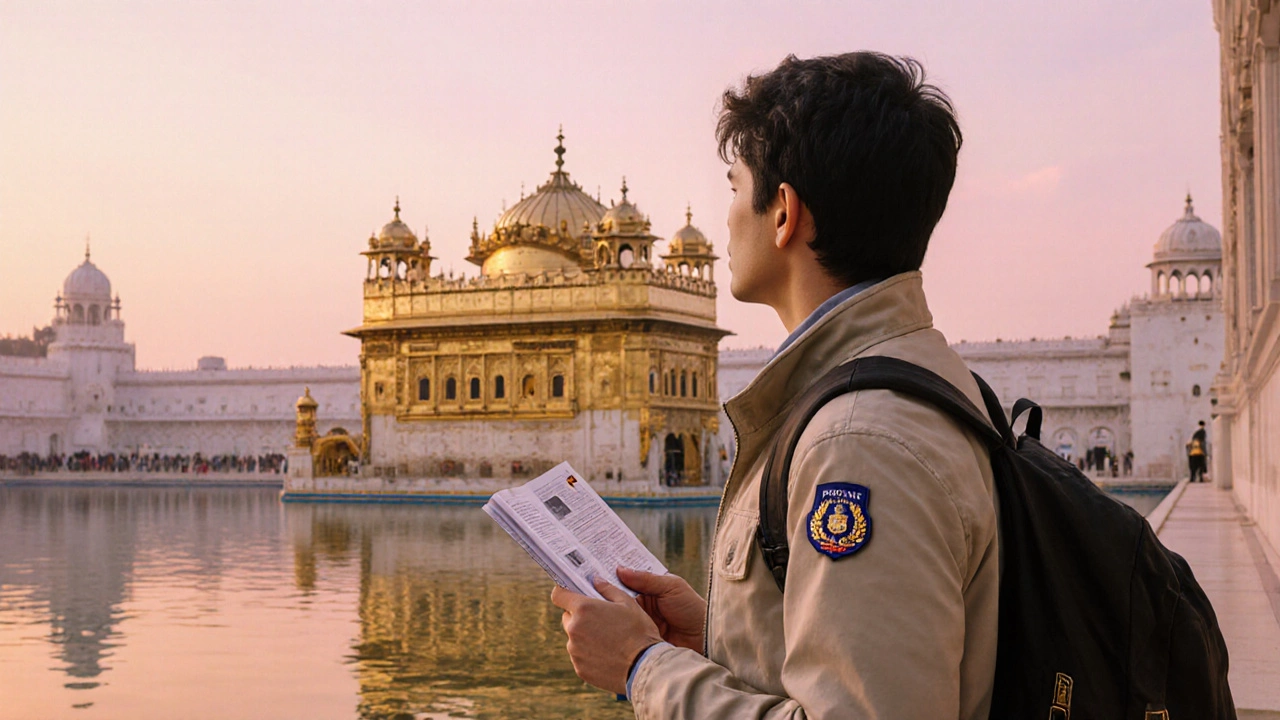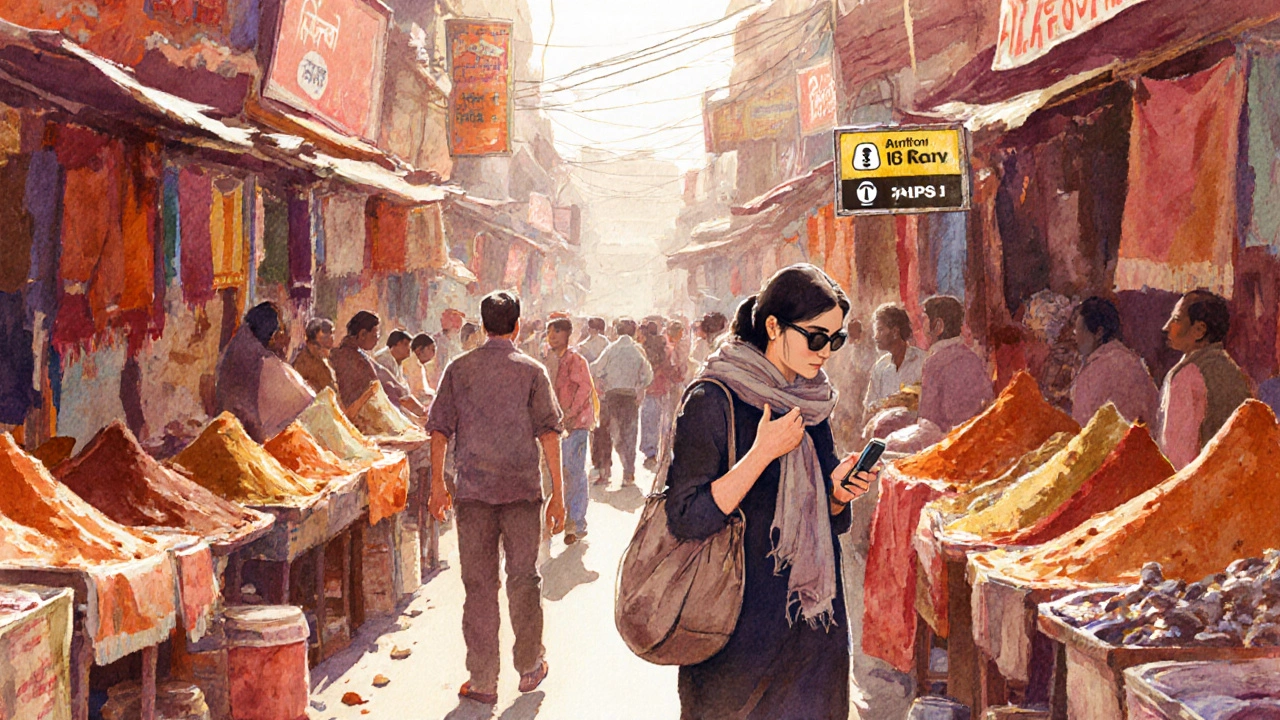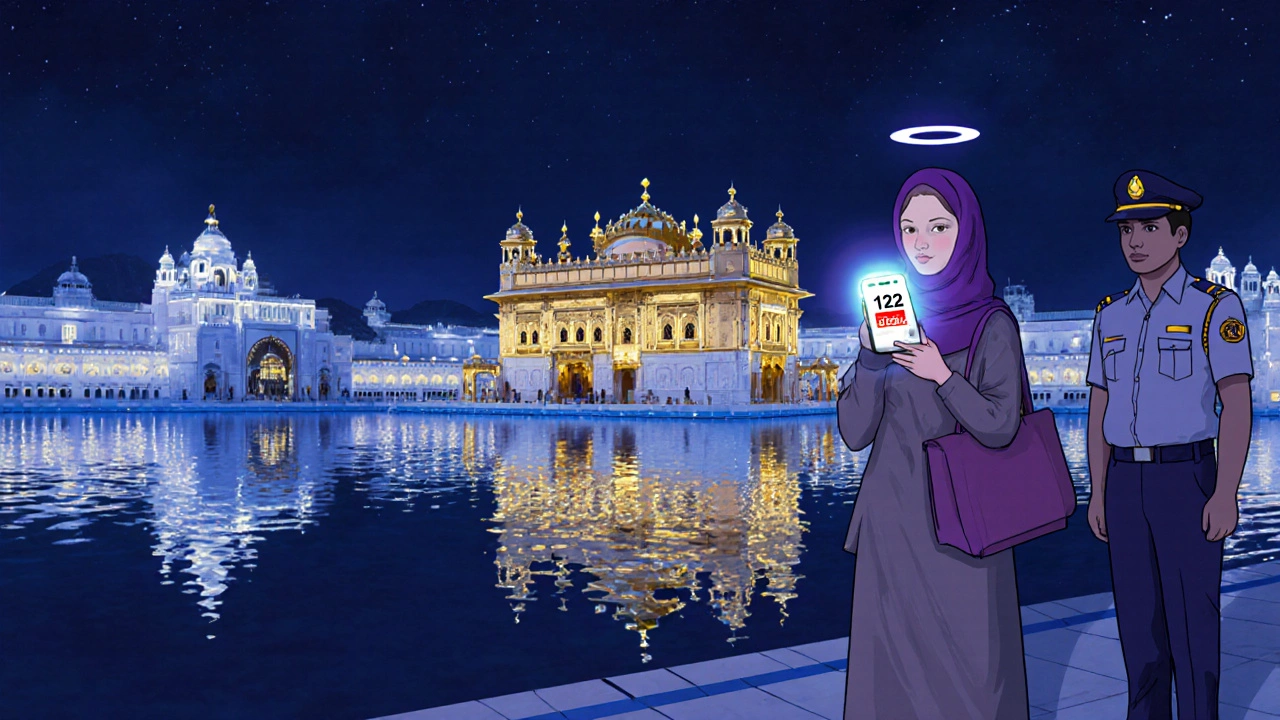Punjab Travel Safety: What Tourists Need to Know
 Oct, 16 2025
Oct, 16 2025
Punjab Travel Safety Calculator
Travel Safety Assessment
Your Safety Assessment
Personalized Recommendations
Essential Contacts
Emergency: 112
Tourist Police: 0172-222-1234
Medical Emergency: Local hospitals in Amritsar/Chandigarh
Punjab is a north‑Indian state known for its golden fields, vibrant festivals, and iconic landmarks like the Golden Temple. For many travelers, the big question is: how safe is Punjab for tourists? This guide breaks down crime, health, transport, and practical tips so you can decide whether to add Punjab to your itinerary with confidence.
Key Takeaways
- Violent crime rates in Punjab are lower than many major Indian cities, but petty theft can happen in crowded spots.
- Health risks are modest; vaccinations for hepatitisA, typhoid, and routine immunizations are recommended.
- Women travelers report a generally welcoming environment, though standard precautions are advised after dark.
- Emergency services are accessible; the state police hotline (112) connects you to Indian Police dispatch.
- Smart travel insurance and a few simple safety habits can dramatically reduce any lingering worries.
Crime Landscape in Punjab
According to the 2024 National Crime Records Bureau (NCRB) report, Punjab’s overall crime rate sits at 3.2 crimes per 1,000 residents-well beneath the national average of 4.5. Most incidents involve petty theft, especially in tourist hubs like Amritsar and Chandigarh. Violent crimes such as assault or armed robbery are rare, accounting for less than 5% of reported offenses.
For travelers, the practical takeaway is to stay alert in busy markets, keep bags zipped, and avoid displaying expensive jewelry. Using reputable taxis or rides‑hailing apps (e.g., Ola, Uber) cuts down the risk of driver‑related scams.
Health and Hygiene Concerns
Punjab’s health infrastructure has improved considerably; major cities have government hospitals, private clinics, and a growing number of pharmacies. The most common health issues for tourists are food‑borne illnesses and mosquito‑borne diseases during the monsoon (June‑September).
Recommended vaccinations (as of 2025) include hepatitisA, typhoid, and routine MMR. Carry a basic medical kit with rehydration salts, over‑the‑counter pain relievers, and any personal prescription meds. Drink only bottled or filtered water; many hotels provide safe water, but street vendors may not follow strict standards.

Transport Safety
Road travel is the primary way to explore Punjab’s cities and countryside. The state’s highway network is well‑maintained, but rural roads can be uneven and poorly lit at night. If you rent a car, choose a reputable agency that offers GPS and insurance coverage.
Public buses and trains are generally safe, though coaches can be crowded. The IndiGo and Railway services have a good safety record. For night travel, opt for AC‑coach trains or private taxi services rather than open‑deck buses.
Women’s Safety
Punjab ranks among the more welcoming Indian states for solo female travelers. Major attractions such as the Golden Temple and the historic Jallianwala Bagh see a steady flow of female visitors without incident. Nonetheless, the usual precautions apply: avoid isolated streets after dark, dress modestly in religious sites, and keep your phone charged.
Many hotels now provide women‑only floors or rooms, and several local NGOs operate safe‑travel helplines. If you ever feel unsafe, dialing 112 will connect you to the Indian Police who are trained to assist tourists.

Emergency Contacts and Resources
Having the right numbers at hand can turn a stressful moment into a quick resolution. Here’s a concise list:
- General emergency (police, fire, ambulance): 112
- Tourist police helpline (English/Hindi): 0172‑222‑1234
- Nearest embassy or high commission (if you’re from Canada, the Canadian High Commission in New Delhi can assist remotely)
- Local medical emergency (max‑care hospitals in Amritsar and Chandigarh)
Practical Safety Checklist for Punjab
- Purchase comprehensive travel insurance that covers medical evacuation.
- Register your travel plans with your home country’s online portal.
- Keep digital copies of passport, visa, and insurance documents.
- Use only reputable transport services; avoid unmarked rickshaws.
- Stay in well‑reviewed accommodations; check for 24‑hour front desk.
- Carry a small amount of cash; use cards for larger purchases.
- Learn basic Hindi phrases like “madad” (help) and “police station”.
- Respect local customs: remove shoes inside temples, ask before photographing locals.
Frequently Asked Questions
Is Punjab safe for solo travelers?
Yes. Most solo travelers, including women, report positive experiences. Stick to popular areas, use reputable transport, and follow basic safety practices.
What are the most common scams targeting tourists?
Common scams include overpriced taxi fares, fake guide offers, and unsolicited “discount” tickets for attractions. Always confirm fares beforehand and book guides through official tourism desks.
Do I need a visa to visit Punjab?
Punjab is part of India, so you need an Indian visa. Canada‑issued e‑tourist visas are processed online and usually approved within a week.
How is the medical care for foreign tourists?
Major cities have private hospitals with English‑speaking staff. For serious conditions, you may be referred to Delhi’s bigger facilities. Travel insurance with medical evacuation coverage is strongly recommended.
What should I do if I lose my passport?
Report the loss immediately to the local police (dial 112) and obtain a FIR. Then contact the Canadian High Commission in New Delhi for a temporary travel document.
Overall, Punjab offers a rich cultural experience with a safety profile that rivals many popular tourist destinations. By staying informed, preparing ahead, and using the tips above, you can explore the state’s historic sites, bustling markets, and serene countryside with peace of mind.